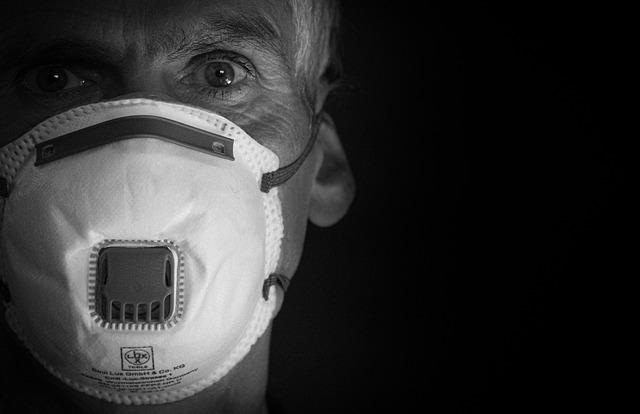Introduction:
The recent passing of Prince Frederik has sent shockwaves through both royal circles and the wider public, bringing attention not only to the life of the beloved figure but also to the complexities surrounding his health struggles. Central to the conversations following his death is the rare and often misunderstood POLG mitochondrial disease, a condition that affects the bodyŌĆÖs energy production at a cellular level.As details emerge about how this disease impacted the PrinceŌĆÖs life and ultimately contributed to his untimely demise, it becomes crucial to explore the implications of POLG mitochondrial diseaseŌĆöits symptoms, progression, and the broader context within which it exists. This article aims to shed light on this rare genetic disorder, providing insights into its significance and the ongoing conversations about health, genetics, and public awareness sparked by the PrinceŌĆÖs story.
Understanding POLG Mitochondrial disease and Its Impact on Health

The POLG mitochondrial disease is a complex genetic disorder stemming from mutations in the POLG gene, which is critical for mitochondrial DNA replication and maintenance. This dysfunction leads to a variety of symptoms that can affect multiple systems in the body, as mitochondria play a pivotal role in energy production. Individuals diagnosed with this condition may experience a range of health issues, including:
- Neurological problems: Seizures, developmental delays, and ataxia are common.
- Muscle weakness: This can manifest as fatigue and difficulties in coordination.
- Visceral symptoms: Liver and gastrointestinal complications may arise.
- Endocrinological disruptions: Patients might encounter diabetes and thyroid dysfunction.
The impact of POLG-related mitochondrial disease can vary widely among affected individuals, ranging from mild symptoms to severe, life-threatening conditions. Its unpredictable nature poses a challenge for both diagnosis and management, often requiring a multidisciplinary approach for effective treatment. Early identification and intervention are crucial for improving quality of life and potentially slowing disease progression, leading to the need for ongoing research to uncover novel therapeutic strategies. The burden of this disease extends beyond physical health,affecting emotional and social well-being,making awareness and support vital for those navigating its complexities.
The Role of Mitochondria in Human Biology and Disease Development

Mitochondria, often referred to as the powerhouses of the cell, play a crucial role in generating adenosine triphosphate (ATP), the energy currency vital for cellular functions. These organelles are not just energy producers; they are also involved in various metabolic processes, including the regulation of the cellular surroundings, apoptosis (programmed cell death), and the production of reactive oxygen species. Their efficiency is paramount to maintaining overall health, and any dysfunction can led to notable biological consequences. In particular, mitochondrial diseases, like those linked to POLG gene mutations, can disrupt energy production, leading to a spectrum of symptoms that may affect multiple organ systems and manifest at any age.
The implications of mitochondrial dysfunction extend beyond isolated health issues; they are increasingly recognized as key players in the development of various diseases, including neurodegenerative conditions and metabolic disorders.Mitochondrial genetics, such as those associated with POLG mutations, can lead to impaired mitochondrial DNA replication and stability, later affecting energy metabolism. This dysfunction may result in problems such as:
- Muscle weakness
- Neurological deterioration
- Organ system malfunctions
- Increased susceptibility to oxidative stress
Research continues to unveil the intricate relationship between mitochondrial health and disease, shining light on potential therapeutic strategies aimed at enhancing mitochondrial function, thereby offering hope for those affected by mitochondrial disorders.
Examining the Symptoms and diagnosis of POLG Mitochondrial Disease

POLG mitochondrial disease is a rare genetic disorder that affects the body’s ability to generate energy, leading to various symptoms that can manifest across multiple body systems. Common symptoms include:
- Muscle weakness
- Neurological issues such as seizures and developmental delays
- Vision problems including retinal degeneration
- Gastrointestinal disturbances
- Cardiomyopathy
Diagnosis of POLG mitochondrial disease can be challenging due to the overlap of its symptoms with othre disorders. Physicians typically conduct a thorough evaluation,including:
- Family history assessment
- Detailed clinical examination
- Biochemical tests to assess mitochondrial function
- Genetic testing for mutations in the POLG gene
A comprehensive diagnostic approach is critical for early intervention,given that symptoms can evolve over time,affecting the prognosis.
Current Treatment Options and Emerging Therapies for Patients

POLG mitochondrial disease, a genetic disorder impacting the cells’ energy production, has profound implications for patients and their families. Current treatment options primarily focus on managing symptoms and improving quality of life rather than providing a definitive cure. Common interventions include:
- Supportive therapies: Physical therapy, occupational therapy, and speech therapy to help maintain function.
- Nutritional support: Special diets to enhance metabolic function and provide symptomatic relief.
- Antioxidants: Use of coenzyme Q10 and other antioxidants to help improve mitochondrial function.
However,the landscape of treatment is evolving,with emerging therapies showing promise in clinical trials. Novel strategies include gene therapy approaches aimed at correcting the underlying genetic defect and innovative pharmacological agents designed to boost mitochondrial biogenesis. A summary of potential emerging therapies includes:
| Therapy | Mechanism | Status |
|---|---|---|
| gene Editing | Corrects genetic mutations | In trial |
| mitochondrial Replacement | Replaces defective mitochondria | In trial |
| Metabolic Modulators | Enhances energy production | In development |
As research progresses, the hope for more effective treatments continues to grow, potentially transforming the lives of patients affected by POLG mitochondrial disease.
The Genetic Basis of POLG Mitochondrial Disease and Testing Recommendations

The POLG gene encodes a crucial enzyme, polymerase gamma, responsible for mitochondrial DNA replication and repair. Mutations in this gene are linked to a spectrum of mitochondrial disorders, collectively known as POLG mitochondrial disease. Patients with these disorders frequently enough experience symptoms affecting multiple organ systems, especially the nervous system and muscles. The severity and age of onset can vary widely, ranging from early-onset forms to late-onset conditions. Key manifestations may include myopathy, ataxia, seizures, and dementia, which can complicate diagnosis and management. Understanding these symptoms is vital for proper recognition and referral to specialized care.
Genetic testing is a pivotal step in diagnosing POLG-related disorders, as it helps confirm the presence of mutations in the POLG gene. Testing is recommended for individuals exhibiting various clinical features, particularly when there is a family history of similar conditions. Diagnostic strategies may include:
- Targeted mutation analysis: Focused tests to identify known pathogenic mutations.
- Next-generation sequencing: Comprehensive analysis of POLG and other mitochondrial genes.
- whole exome sequencing: Evaluating all coding regions for potential pathogenic variants.
Healthcare providers are advised to follow established guidelines that encompass clinical evaluation, comprehensive genetic counseling, and appropriate biochemical testing, which can reveal mitochondrial dysfunction. A collaborative approach can significantly enhance diagnostic accuracy and patient outcomes.
Support and Resources for Families Affected by POLG Mitochondrial Disease

Families confronting the challenges of POLG mitochondrial disease often seek a network of support that extends beyond medical resources. establishing connections with patient advocacy groups can provide not only emotional relief, but also valuable data about the latest research, treatment options, and ongoing clinical trials. Among the available resources, organizations such as Mitochondrial Disease Foundation and United Mitochondrial Disease foundation offer educational materials, family conferences, and online support forums to ensure families never feel isolated in their journey.
Additionally, financial assistance programs may alleviate some of the burdens that come with managing a chronic health condition.Families are encouraged to explore options such as non-profit organizations, government aid, and potential medical grants. Below is a simple table outlining notable resources that can offer assistance:
| Resource | Description | Website |
|---|---|---|
| Mitochondrial Disease Foundation | offers support, education, and advocacy for families. | mitochondrialdisease.org |
| United Mitochondrial Disease Foundation | Provides resources and information for diagnosis and treatment. | umdf.org |
| Genetic and Rare Diseases Information Center | Offers information about genetic conditions and support services. | rarediseases.info.nih.gov |
In Conclusion
the tragic passing of Prince Frederik has brought renewed attention to POLG mitochondrial disease, a complex genetic disorder that affects cellular energy production. As the implications of this condition become more understood, conversations surrounding mitochondrial health and genetic research are likely to gain importance. While the loss of such a prominent figure is deeply felt, it also serves as a crucial reminder of the ongoing need for awareness and research in the field of mitochondrial diseases. As we reflect on Prince FrederikŌĆÖs life and legacy, it is essential to continue advocating for advancements in medical understanding and patient care, allowing us to honour his memory through meaningful progress in the fight against these debilitating conditions.
















